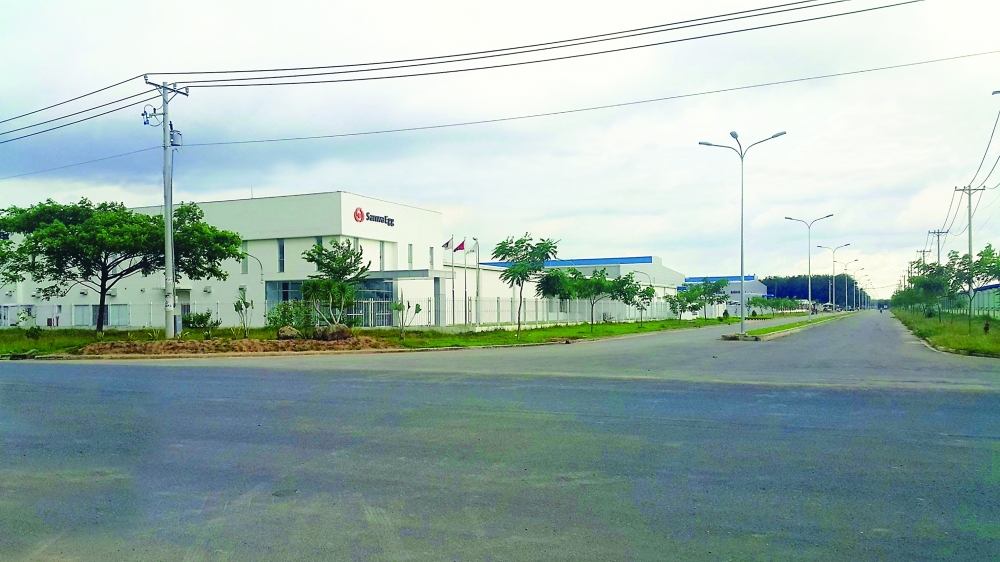These include land planning, site clearance, completion of bidding mechanisms, promoting the role of private investment, and selective foreign direct investment (FDI).

Competitive advantages decline
The SKEZ serves eight provinces and cities - Ho Chi Minh City, Dong Nai, Binh Duong, Binh Phuoc, Ba Ria-Vung Tau, Tay Ninh, Long An and Tien Giang provinces. It has taken the lead nationwide in terms of attracting FDI with over 15,000 valid FDI projects, and 140 industrial parks and export processing zones. It also acts as an economic gateway and bridge linking Vietnam’s trade with the world.
However, the SKEZ’s growth has slowed. Its average growth rate in the 2016-2018 period was equivalent only to that of the whole country because the region’s advantages have not been fully promoted to create a new driving force for growth.
Dr. Vu Tien Loc, Chair of the Vietnam Chamber of Commerce and Industry, believes regional development policies are incomplete, while coordination among cities and provinces in the region remains loose and spontaneous. In addition, the urban development is of low quality with many polluted areas and inappropriate social security conditions. The local human resources have not yet met the needs of businesses, and there is still a supply-demand imbalance in the allocation of labor resources.
Removing blocks
Do Thien Anh Tuan, a lecturer at Fulbright University, said authorities must implement land planning, site clearance, completion of bidding mechanisms, promoting the role of private investment, and selective FDI. They must also make full use of Official Development Assistance (ODA), and build a framework for the public-private partnership model.
The Chair of Binh Duong People’s Committee Tran Thanh Liem said the government and ministries need to allocate state budgets for key regional transport projects, and logistics system need to be connected with the national and inter-regional systems.
Le Duy Hiep, Chair of the Logistics Association, said the SKEZ needs clear regional planning and a regional connectivity mechanism to help reduce logistics costs and improve the competitiveness of regional enterprises.
Deputy Director General of the Department of Planning in the Ministry of Industry and Trade Nguyen Thuy Hien said that to remove bottlenecks in order to boost development in the region, a review of regional infrastructure planning is needed, especially on transport, industry, trade and logistics. In addition, the investment planning needs to focus on inter-regional infrastructure work to facilitate goods transport and the development of the private sector; cut business costs, and make the investment environment more transparent, open and convenient.
Dr. Tran Du Lich, a member of the prime minister’s Economic Advisory Group: “We need to make innovations with breakthroughs in thinking about regional economic development instead of provincial economic development, and policies for regional economic development need to be adopted as part of the regional planning.”


















